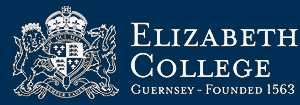
Why Choose an HMC School?
Elizabeth College is an HMC School; HMC (or the Heads’ Conference) is an association of Headteachers drawn from some of the world’s best schools.
HMC schools educate over 250,000 students in the UK (or roughly half of all independently educated students). A rigorous accreditation process helps to ensure and maintain quality and HMC schools are all committed to outreach and partnership work.
Much of the strength of HMC derives from the participation of members and their schools in the association’s work. The association is active in developing and maintaining relations with a range of educational partners and stakeholders from government to examination boards.
In addition, Elizabeth College Junior School is part of the Independent Association of Prep Schools (IAPS). Schools must reach a very high standard to be eligible for membership, with strict criteria on teaching a broad curriculum, maintaining excellent standards of pastoral care and keeping staff members’ professional development training up to date.
HMC and IAPS schools offer a huge variety of experiences for students with a wider subject choice, more opportunities for extra-curricular activities and timetabled sport, music and drama which involves all students. Although schools can look to have a lot in common with each other, each one is unique and there is a school that meets every families’ needs. Some of the core advantages include:



